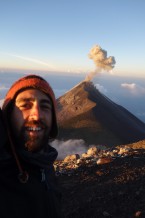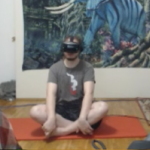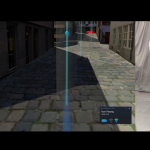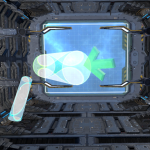
Biography
Alexander joined the iSpace Lab in Fall 2020 as a PhD student working on a Locomotion Interface for Virtual Reality and Telepresence. He is fascinated by altered states of consciousness and Human-Machine Interfaces. In his Bachelor in Cognitive Science from the University of Osnabrück, Germany he concentrated on psychology, computer science, math, and philosophy. His Master’s in the interdisciplinary studies of ‘Intelligence and Movement’ at the University of Bielefeld, Germany focused on understanding human interactions with environments. He is excited to develop and design technologies merging humans with machines and enhance usability in order to target problems of our future.
He recently started a job in industry.
Projects
Autoethnographic Close Reading of Self-transcendent VR Experiences
Sipping the Virtual Elixir: An autoethnographic close reading of Ayahuasca Kosmik Journey a self-transcendent virtual experience. Recently self-transcendent experiences are gaining interest in the research community because of their ability to support wellbeing. Experiences of self-transcendence can be transformative, leading to a diminishment of self/ego and the feeling of unity with n...
Integrating Continuous and Teleporting VR Locomotion into a Seamless "HyperJump" Paradigm
Here we propose a hybrid interface that allows user to seamlessly transition between a slow 'continuous' mode and a fast 'hyperjump' mode. The interface aims to maintain the immersion, presence, accuracy and spatial updating of continuous locomotion while adding the travel efficiency and minimizing the cybersickness. Continuous locomotion in VR provides uninterrupted optical flow, which mimics re...
Embodied & Intuitive Flying for VR, Gaming, and TeleOperation
Flying has been a dream for mankind for millenia - but flying interfaces for VR, gaming, and teleoperation (e.g., drones) typically rely on cumbersome double-joystick/gamepads and do not allow for intuitive and embodied flying experiences. Here, we develop low-cost embodied flying interfaces that adapt leaning-based motion cueing paradigms thus freeing up hands for additional tasks beyond just na...


